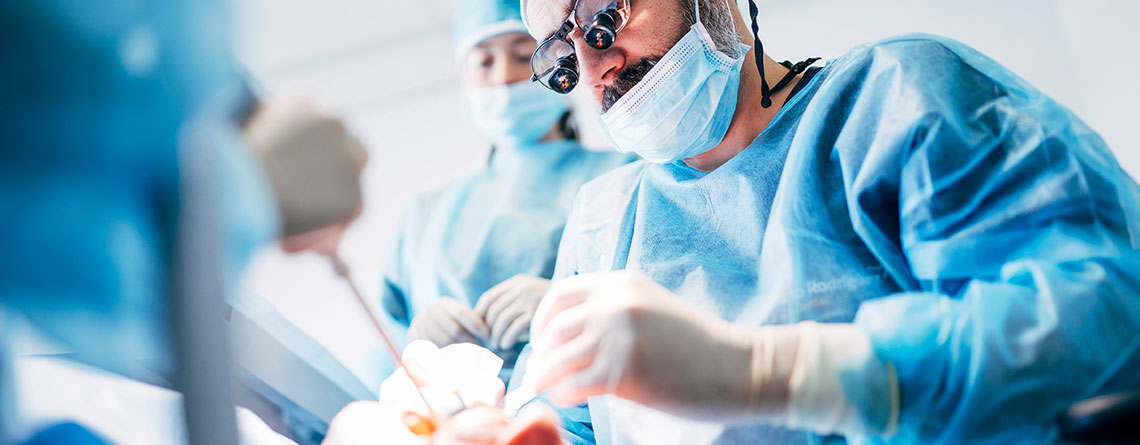Deformations and diseases caused by various reasons in the mouth, teeth and jaw area create health problems in people. Also, abrasions in the teeth and damage due to injuries create difficulties in chewing, biting, and swallowing, reducing the life comfort of individuals. In such cases, support should be sought from dental surgery, which we encounter with very advanced applications today.
What is dental surgery? In which cases is dental surgery applied?
Dental surgery is a branch of surgery in which diseases that affect the health of soft tissues such as the tongue, cheek, palate, and hard tissues made out of teeth and bones are treated with anaesthesia and in a clinical setting. Complications that occur functionally or create aesthetic problems in the mouth, teeth and jaw are the subject of oral, dental and maxillofacial surgery. Dental surgery practice refers to a process that must be carried out expertly, from the evaluation of the general condition of the patient to the selection of the appropriate anesthesia technique.
Dental surgery is available in the following situations:
- Tooth extraction,
- Extraction of complicated or embedded, impacted teeth,
- Treatment of lesions caused by teeth in the bones,
- Treatment of soft tissue diseases in the oral cavity,
- Bone addition in cases where there is a decrease in the amount of bones (bone augmentation)
- Implant applications,
- Traumatic injuries to the teeth, damage to the supporting tissue,
- Preprosthetic surgery applications before prosthesis,
- Grift or sinus lifting applications,
- Wisdom tooth extractions,
- Joint diseases and treatment,
- Abscess treatment,
- Orthodontic treatment, also known as dental treatment with braces.
By whom and how is a surgical dental treatment applied?
Surgical dental treatment or dental surgery is a specialty. In order to become an oral, maxillofacial and dental surgeon, it is necessary to specialize in Oral, Dental and Maxillofacial Diseases and Surgery after a five-year dentistry license. Dental surgery is one of the difficult areas of dentistry and is within the professional competence of oral, dental, and maxillofacial specialists.
Specialist physicians decide on the treatment by conducting a general examination of the patient before intraoral surgery. Dental surgery treatment can only be performed by specialists in the field, in a clinical environment and hygienic conditions after general examinations. During the treatment, the patient is given general or local anaesthesia or sedation. In general, good knowledge of the anatomy of the region and the experience of the dentist is important in the success of the treatment.
What is impacted tooth surgery? Is it risky?
Impacted teeth are the teeth that do not erupt on time and remain in the jawbone. Health problems should be treated with dental surgery treatment as it sometimes creates aesthetic defects in the future. The impacted tooth treatment is performed by removing the bones in the area under local anesthesia, and the sutures are removed within ten days. It is a surgical operation that requires expertise.
Impacted tooth treatment is among the most common cases of dental surgery. Risks are eliminated when dental orthodontics is evaluated professionally and applied under hygienic conditions in a clinical setting. Patients should be careful, pay attention to hygiene and not interrupt drug treatment until the stitches are removed after the treatment.

